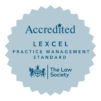Types of Domestic Abuse
There are many types of domestic abuse, this can include but not limited to, the following:
- Emotional abuse;
- Sexual abuse;
- Financial abuse;
- Psychological abuse;
- Coercive control
- Digital or online abuse;
- Harassment;
- Stalking
What is emotional abuse?
Emotional abuse involves controlling another person by using emotions to criticise, embarrass, shame, blame, or otherwise manipulate them. This usually wears down a person’s self-esteem or undermine their mental health. Emotional abuse can chip away at a person’s self-esteem and make them feel extremely low.
What is sexual abuse?
Sexual abuse involves forcing a partner to take part is a sexual act when the partner does not consent.
What is financial abuse?
Financial abuse is when your partner controls you having access to your finances which makes you become financially dependent of them. An example of this could be that you have to ask for permission when you want to buy something that you need.
What is psychological abuse?
Psychological abuse is sometimes referred to as emotional abuse but there is a slight difference. Psychological abuse involves the use of verbal and social tactics to control someone’s way of thinking, such as “gas lighting”. Gas lighting tends to happen gradually in a relationship and is a pattern of behaviour in which your partner intentionally denies that events happened in the way that you know that they happened. Your partner will often twist your emotions, words, and experiences and use them against you, which causes you to question your reality, to doubt your own judgment and memory, and to make you feel that you are “going crazy.”
What is coercive control?
Coercive control is an act, or a pattern of acts, of assault, threats, humiliation and intimidation that abusers use to harm, punish or frighten their partner. It doesn’t relate to a single incident – it is a purposeful pattern of behaviour. An example of this could be that your partner isolates you from your family and friends. Another example could be that they monitor how you spend your time.
What is digital abuse?
Digital abuse is when someone monitors, stalks, harasses, threatens, controls or impersonates another person using technology. This could involve stalking through social media, harassment by text message or humiliation by posting pictures or videos.













